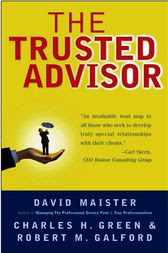In the late 20th century, the United States Army War College created the acronym VUCA to describe the conditions that would exist after the disintegration of the Soviet Union. The acronym stands for volatile, uncertain, complex, and ambiguous. The term has caught on with the military and, especially, in business, describing the general conditions that exist today in nearly every aspect of our daily lives: technology, culture, politics, economics, etc. Massive changes, simultaneous opportunities for greater abundance as well as disruption of our way of life, are the order of the day.
As science and technology inexorably advance, there may soon come a day when sophisticated tax, legal, accounting, financial, and other technical information and strategies will be widely available on demand to the general public at an affordable price. We will also face unprecedented disruptions in our traditional patterns of work, career development, family dynamics, aging, and retirement.[1] Perhaps these trends will eventually lead to a world where artificial intelligence, “big data”, and algorithms know us so well that our most sophisticated multi-generational planning is automated and personalized.[2]
With the inexorable advance of technology and its dominance in our everyday lives, what will the future of family stewardship planning be?
Charles H. Green, the author of the book “The Trusted Advisor” says:
“People rarely give over their trust to institutions; really, they trust other people…While companies are often described as credible and reliable…it’s really the people within the companies that make those companies what they are.”

In a rapidly changing VUCA world, we do our best to foster participation and engagement in experiences where people are in conversations with other people. We view our role as guiding people down the path of discovery through these experiences and conversations. The practice of Gratitude especially has, in our experience, transformed people’s experience of wealth and their experiences of other family members, making them more aware of their common bonds and shared values.
Stewardship involves building and developing leadership in future generations and committing to ethical excellence in the way we lead our lives and families. Stewardship and family leadership also involves intentionally being aware of and nurturing sustainable family culture (the traditions, rituals, ceremonies, and unspoken ways that families do things, interact, as well as the expectations that go with these activities). Family culture is often a missing element in trust and estate planning, especially when governance and structure are the primary emphasis in the planning process. We view this as our opportunity to make a difference in the effectiveness of the planning process, regardless of the state of the world, technology, or existing relationships with other advisors.
[1] “Reimagining Maturity”, Ken Dychtwald, American Society on Aging Annual Conference, General Session Keynote address, March 23, 2015.
[2] Peter Diamandis and Ray Kurzweil, Abundance 360, Livestream, September 14, 2018. During this video broadcast Kurzweil and Diamandis speculated that such capabilities might become widely available within the next 10 to 15 years because of what Kurzweil calls “the law of accelerating returns”.

